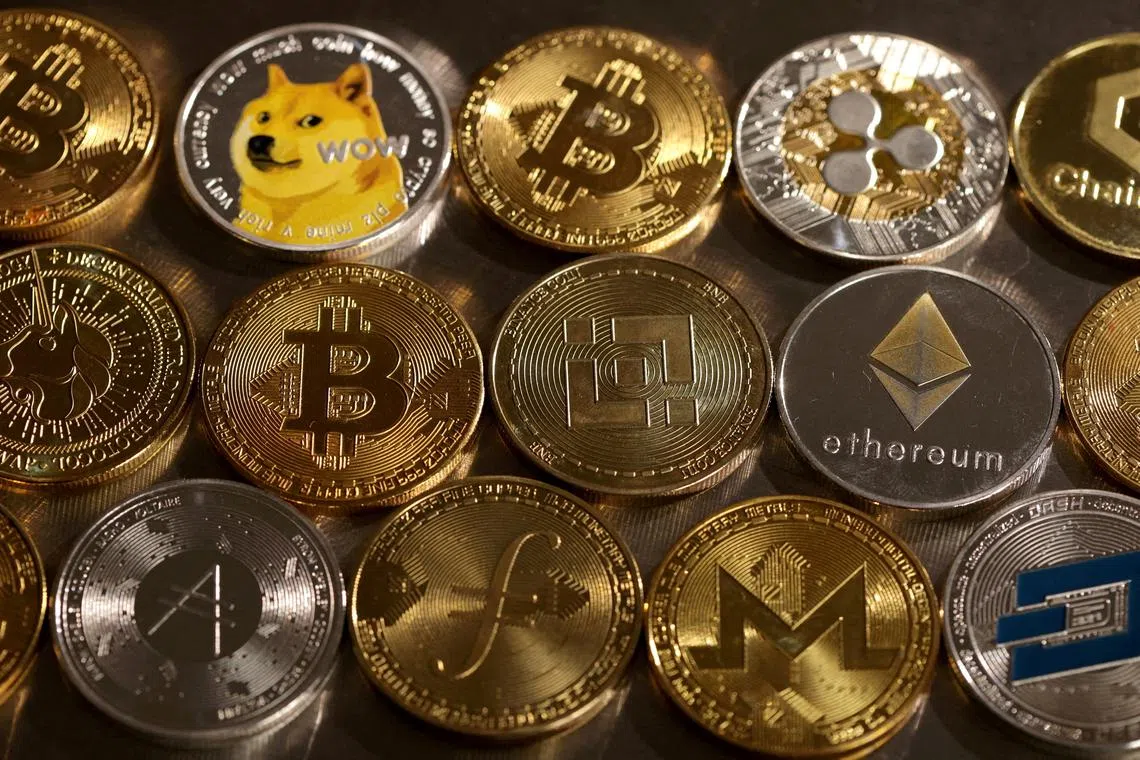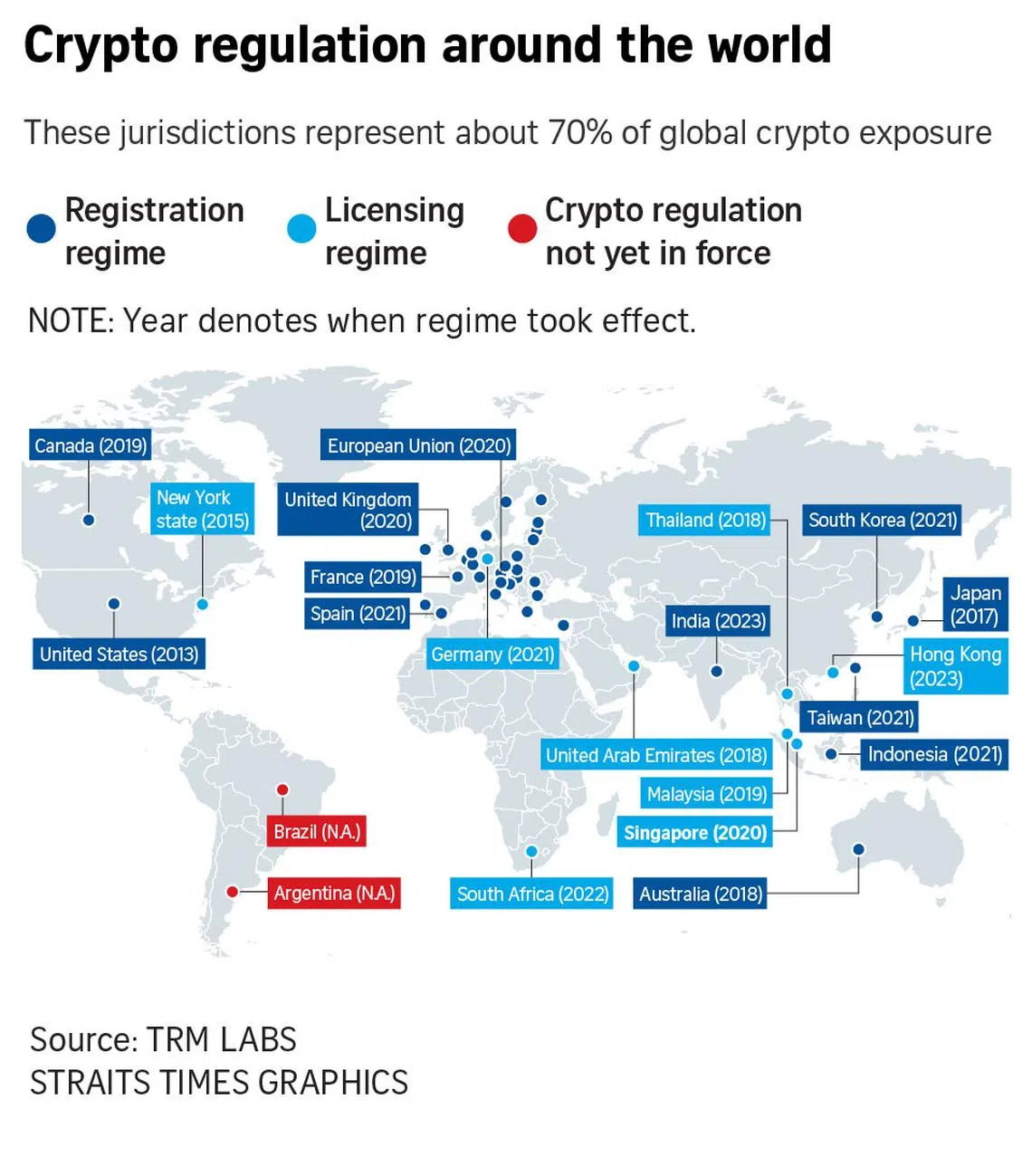Most key global crypto markets tightening consumer protection rules, says report
Sign up now: Get ST's newsletters delivered to your inbox

In 2024, the implementation of regulatory framework will likely be a key theme in Singapore.
PHOTO: REUTERS
SINGAPORE - A majority of key markets in the global digital assets sector, including Singapore, have moved to tighten regulations, with about half of them focused on consumer protection, a report has found.
Blockchain analysis firm TRM Labs said in a report released on Jan 8 that it had reviewed crypto policy developments in 2023 across 21 jurisdictions representing about 70 per cent of global crypto exposure.
In 2023, 80 per cent of the 21 jurisdictions moved to tighten crypto rules, with nearly half of them tightening consumer protection measures.
Singapore is among the eight jurisdictions that have a licensing regime for crypto businesses. Others include Hong Kong, Thailand and Germany.
Those that rely on a registration regime include Canada, the European Union and Japan.
Brazil and Argentina were listed as places where crypto regulation is not yet in force.
The report said 2024 will be another year for the development and implementation of crypto asset policy at both the international and national levels.
On the domestic front, Singapore regulators wrapped up policy moves for consumer protection and finalised the stablecoin framework, said the report.
The new consumer protection rules
Stablecoins are tokens pegged to a currency like the US dollar or a commodity, usually on a one-to-one basis.
In 2024, the implementation of a regulatory framework will likely be a key theme in Singapore.
The report said the Monetary Authority of Singapore (MAS) plans to implement its consumer protection measures starting in early to mid-2024, with a nine-month transition period.
The MAS is also looking to widen the scope of both licensing and supervision of Singapore-incorporated digital token payment service providers by end-2024 in terms of anti-money laundering and countering terrorism financing.
“The enhancement seeks to achieve alignment with the latest Financial Action Task Force (FATF) standards, ahead of Singapore’s FATF mutual evaluation in 2025,” the report stated, referring to the global money laundering and terrorist financing watchdog.
It added that while most areas of crypto regulations are clear, decentralised finance (DeFi) remains a topic that is not yet addressed, specifically where the responsibility and accountability lie, and how regulators can realistically exercise oversight and authority.

DeFi is an emerging financial system that removes intermediaries and is based on the blockchain. People can send, buy and exchange financial assets directly without relying on banks, brokerages, or exchanges.
In terms of international standards, the FATF will be rolling out its road map in 2024 for improving the implementation of standards on crypto assets.
The report added that this will also be the year the US refreshes national risk assessments on money laundering and terrorist financing.
Global regulators moved to set up regulatory frameworks for digital asset businesses in 2023 following the unexpected collapse of prominent exchange FTX



